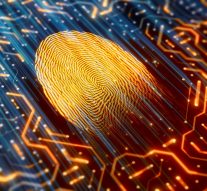
Digital technologies and digital responses
Space policy 14 April 2020Challenged with Covid 19, digital technologies play an important role in the social, health and economic environment. A digital response can bring significant value through new applications.
As containment and social distancing measures enter a new extended phase in some European countries, in other, like China, the population has been allowed to travel again. Fearing a second wave of infections, many governments have decided to integrate thermometers and imaging scanners to screening the population, identifying potential ill persons. More advanced AI-applications are now in subways and buses and can screen people from distance and test within minutes.
While these monitoring systems are gaining momentum, EU countries are still in the phase of using location data transmitted by mobile phones to determine the effectiveness of their coronavirus lockdowns. From anonymized data to relevant authorities, to anonymized customer data to track and analyse population movements. However, the telecom operators are moving very carefully as European countries have some of the world’s strictest rules for the use and sharing of mobile phone location data.
These technologies in fact need access to data transmitted by mobile phones, including location data and also a framework in which to develop them, and in this context, close coordination with authorities, research centres, telecoms and high-tech industry is crucial to maintain a functional chain of information sharing for the data privacy safety of the individuals. The term “location data” alert people and fear of being tracked is real, as well as the potential abuse of their data. However, it’s a powerful tool to understand group behavior, economic trends and the impact of public policy.
Aside the implications, smartphone location data could be used to track people in the attempt of flattening the contain the virus, however this tracking would require the individuals’ consent for a legal basis as well as a detailed analysis to ensure the data protection. The technology exists, Google maps, for example, uses the GPS to estimate traffic and calculate journey times.
The referent GPS for the European Union is Galileo, the global navigation satellite system (GNSS) created by the European Commission in 2016, which provide an independent high-precision positioning system to European nations. This €10 billion project was created as an alternative to U.S. GPS or the Russian GLONASS system, therefore relying on a secure system in case of operator’s degradation. By telling exactly the position and time, Galileo and EGNOS have been revolutionising transport, farming, logistics and citizens’ daily lives.
At European level, location Galileo based Applications that can be useful in response to the diffusion of Covid 19 cover a wide range of uses, from the support to public authorities in understanding the outbreak, to the support of citizens in their daily life, for example the “Tracking the COVID-19 Pandemic”, and “Queue Management”. For tracking, Mapy.cz , is a mapping application that alerts citizens of potential risky encounters through location sharing and user location data are separated from the other map features. Other examples are Hamagen, StopCovid19, DiAry. For queue management, Ufirst, is a queue management application, allowing people to avoid wasting time in queues. Firstly not conceived for Covid 19, it was then offered for free to Italian citizen to respect social distancing measures.
References
https://www.bruegel.org/2020/03/artificial-intelligence-in-the-fight-against-covid-19/
https://www.gsa.europa.eu/GNSS4Crisis
https://www.nytimes.com/2020/03/01/business/china-coronavirus-surveillance.html


